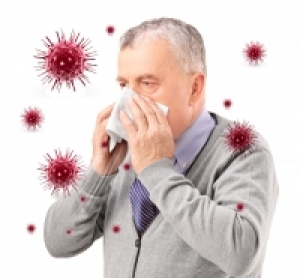Everyone is exposed to a variety of infectious agents in the environment such as bacteria, viruses, and parasites. Any seasonal change challenges our immune system with new pathogens. This year - even before the start of the flu season - the World Health Organization has declared Zika virus infections an international public health emergency. The Zika virus is not a new virus and is similar to other viruses transmitted by mosquitoes such as West Nile virus, dengue, yellow fever, and Japanese encephalitis. The symptoms of Zika virus infection are similar to normal flu symptoms. They include fever, headache, muscle and joint pain, rash and conjunctivitis. Often there are no symptoms, and in most cases people are not aware that they are infected while they are spreading the virus. Currently, mosquito control is the only way for prevention from Zika infection and there are no treatments available. Therefore, it would be prudent to understand how to support our body’s immune system and protect it against Zika or other viral and infectious pathogens.
Influenza (flu) is a common viral disease affecting up to 20% of the world’s population. In most cases, the flu is benign, but it can also have serious consequences especially in people with compromised immune systems, the elderly, and children. It is estimated to cause 250,000 to 500,000 deaths worldwide each year1.
The flu virus easily spreads through the air or by direct contact. In most cases, simple measures such as frequent hand washing and good nutrition are effective in preventing the flu. However, every year media fuelled campaigns promote influenza vaccination as the best protection against the flu. The influenza vaccine global market generates close to $3 billion a year and it is estimated to reach $4.2 billion by the end of 2014. Despite aggressive marketing it has been difficult to prove the efficacy of the flu vaccine since the flu virus frequently mutates (changes) and resistance to the vaccines is very common.

